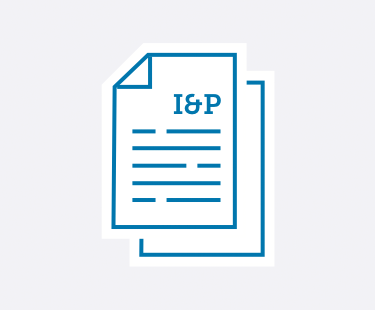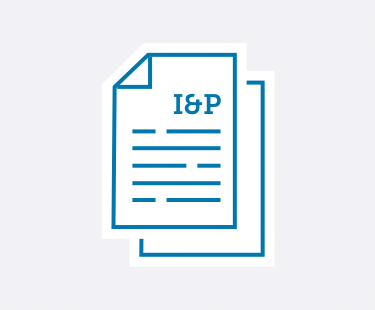

Learn practical strategies to handle emerging trends and leadership challenges in private schools.
No matter if you’re a School Head, Admission Director, Development Director, Board member, or any other private school administrator—Ideas & Perspectives®, ISM’s premier private school publication, has strategic solutions for the pervasive problems you face.
- Tuition not keeping pace with your expenses? In I&P, explore how to use strategic financial planning to create your budget and appropriately adjust your tuition.
- Enrollment dropping off? Discover how to implement the right admission and enrollment management strategies that engage your community—and fill your classrooms.
- Trouble retaining teachers? Learn how you can best support your teachers using ISM’s Comprehensive Faculty Development framework. Your faculty members will become more enthusiastic about their roles—which ultimately improves student outcomes.
- Fundraising campaigns not as successful as you’d hoped? Implement ISM’s practical advice and guidance to build a thriving annual fund, construct an effective capital campaign, and secure major donors—no matter your community size or location.
- Not sure how to provide professional development—for you and your staff? Learn ways to develop and fund a successful professional development strategy. You can improve teacher-centered satisfaction and growth, which in turn strengthens student-centered learning.
- Problematic schedule? You can master the challenges of scheduling with the help of ISM’s practical advice, based on our experience with hundreds of schools and our time-tested theories.
- And so much more.
I&P has shared targeted research, up-to-date insight, and sound theory with school leaders since 1975. More than 8,500 private school decision-makers find the answers to their schools’ administrative and governance matters in our advisory letter. We give you the strategic answers you need.
As an ISM Silver or Gold member, you not only receive issues online and in print 10 times a year, but you have access to 900+ articles in our web archive. Need help? It’s at your fingertips! Learn more and sign up for ISM's membership here.
Search
See the articles from our latest issue of Ideas & Perspectives.
The Student’s Role in Re-recruitment
Volume 37 No. 13 // October 10, 2012
Re-recruitment (those strategies that proactively cause families to re-enroll annually until graduation) is the more important component of enrollment management. Re-recruited families are families who find the value of the education their child is receiving at your school is greater than the perceived cost. In other words, their expectations of the education your school provides have been met or exceeded. Because they value the mission-appropriate, programmatic excellence of your school, they are less likely to think of enrolling their child elsewhere.
1. Already a member? Click here to login.
2. Not a member? Click here to become a member.
3. Not sure? We'll help you figure it out.
Teacher Induction That Supports and Inspires
Volume 37 No. 13 // October 10, 2012
A well-planned introduction to the school’s policies, processes, mission, culture, and values helps new faculty members get off to a good start. Many private-independent schools put much time and energy into carrying out upbeat, friendly, and informative “new-teacher orientation” programs each fall. Effective induction, however, must be more far-reaching in scope than simply having an engaging orientation meeting. This article provides a framework for an induction effort that has long-lasting effects on teacher performance and career satisfaction. In this way, a broadly conceived induction process will benefit not only the new teacher, but also your students and the life of your school.
1. Already a member? Click here to login.
2. Not a member? Click here to become a member.
3. Not sure? We'll help you figure it out.
The True Amount of the ‘Perceived Cost’ of Attending Your School
Volume 37 No. 12 // September 17, 2012
As the Marketing and Communications Director, you have known for years that one aspect of an effective re-recruitment program is to demonstrate consistently and regularly to current parents a positive value proposition—that the perceived value of your school’s education exceeds its perceived cost. A positive value proposition is critical for your school’s parents to feel that the education their child is receiving is worth what it costs the families.
1. Already a member? Click here to login.
2. Not a member? Click here to become a member.
3. Not sure? We'll help you figure it out.
Strategies That Get a ‘Paralyzed’ Board Back on Track
Volume 37 No. 12 // September 17, 2012
When a Board’s internal problems keep it from moving forward in its responsibilities to the school, the Board President and Committee on Trustees must act. The various forms of “Board paralysis” tend to have embedded in them three causes: members who (1) bring their own agendas, (2) have a bureaucratic mind-set, and/or (3) focus on their own children’s issues rather than on the best interests of future students.
1. Already a member? Click here to login.
2. Not a member? Click here to become a member.
3. Not sure? We'll help you figure it out.
Key Advice on Shaping Your Employee Health Benefits Plans
Volume 37 No. 12 // September 17, 2012
Salary alone is not enough to attract and retain a mission-appropriate, quality faculty. When searching for employment today, teachers and staff have benefits expectations. While insurance coverage, pension plans, and paid time off devour a large portion of your school’s budget, they are critical components (with salary) for the recruitment and retention of valued faculty.
1. Already a member? Click here to login.
2. Not a member? Click here to become a member.
3. Not sure? We'll help you figure it out.
Appropriate Tuition Adjustment: Recasting Financial Figures, 2012–13
Volume 37 No. 11 // August 27, 2012
Each fall, ISM publishes a set of conversion factors to facilitate the recasting of previous tuitions into current dollars. (See the table on the next page.) We continue to use the Urban Consumer Price Index (CPI-U).1 However, we also realize that the CPI-U does not completely reflect expenditures in private-independent schools; it can only serve as a base figure. There are compelling arguments for adjusting your tuition at a rate 2% above the overall inflation rate.2
1. Already a member? Click here to login.
2. Not a member? Click here to become a member.
3. Not sure? We'll help you figure it out.
How the Findings of the ISM Student Experience Study Relate to Retention
Volume 37 No. 11 // August 27, 2012
In an earlier I&P, we detailed results of a yearlong study conducted during the 2010–2011 academic year. Titled the Student Experience Study (SES), the project measured the effects of student-perceived predictability and support from their teachers on student performance, satisfaction, and enthusiasm. The results were clear. While there was a positive correlation between predictability and support and performance, there were extraordinarily strong correlations between predictability and support and both student-reported satisfaction and student-reported enthusiasm (each measured separately).
1. Already a member? Click here to login.
2. Not a member? Click here to become a member.
3. Not sure? We'll help you figure it out.
Redesign a Benefit-Oriented Summer Program
Volume 37 No. 11 // August 27, 2012
Now, while this summer’s experiences are fresh in your mind, is the best time to design next year’s summer program. How well did your program meet its mission, its goals, and the needs of today’s families?
1. Already a member? Click here to login.
2. Not a member? Click here to become a member.
3. Not sure? We'll help you figure it out.
Preparing for a Potential Recession
Volume 37 No. 10 // August 10, 2012
There is some growing concern that the United States may be headed into another recession. If it does, this may happen in late summer/early fall. This does not bode well for private-independent schools, as they’ll need to make 2013–2014 tuition decisions about the same time.
1. Already a member? Click here to login.
2. Not a member? Click here to become a member.
3. Not sure? We'll help you figure it out.
The ISM Student Experience Study and Its Impact on ISM X
Volume 37 No. 10 // August 10, 2012
In several recent articles, I&P published results from ISM’s year-long Student Experience Study (SES). A full description of the research methodology and data was published by ISM in January 2012, and summaries of various aspects of the results have appeared in earlier issues of Ideas & Perspectives. The centerpiece of the SES research findings is that teachers’ predictability and supportiveness as perceived by the students have a direct, positive effect on student performance, enthusiasm, and satisfaction. (The results parallel the findings from ISM’s RSM research conducted in the 1990s.) These SES results call for a re-examination of how we should now view the items at the top of ISM X—healthy school culture, internal marketing, and student demand exceeding available space. ISM X is the graphic representation of the Third Iteration of ISM's Stability Markers.
1. Already a member? Click here to login.
2. Not a member? Click here to become a member.
3. Not sure? We'll help you figure it out.


